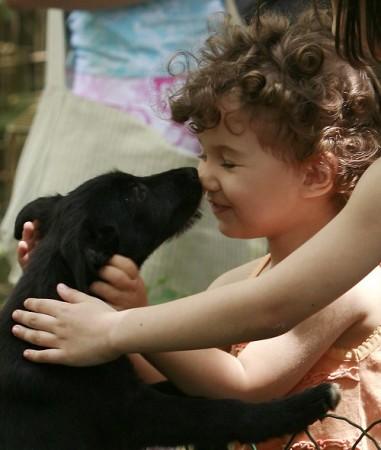
Regular interaction with pets can help improve social skills in autistic children, researchers reveal.
Gretchen Carlisle and colleagues from the University of Missouri in United States have amassed solid evidence to prove that keeping a pet at home can help children overcome certain communication difficulties involved with the disorder.
Though dogs have been known to help in this aspect, the new study found that any type of pets – including rabbits or cats- were equally beneficial.
Children, aged between eight and 18, undergoing treatments at the MU Thompson Center for Autism and Neurodevelopmental Disorders, and their 70 families were included in the study.
Results showed that autistic children who had pets at home mingled more with outsiders than children without having any pets at home. "When I compared the social skills of children with autism who lived with dogs to those who did not, the children with dogs appeared to have greater social skills," Carlisle, from the Research Center for Human-Animal Interaction (ReCHAI) in the MU College of Veterinary Medicine, said in a news release.
These children were also more likely to introduce themselves, respond to queries or interact with others, Carlisle, said: " These kinds of social skills typically are difficult for kids with autism, but this study showed children's assertiveness was greater if they lived with a pet."
The skills went up the longer a child owned a dog. In most of the cases, children preferred or were more attached to smaller dogs.
The findings come at a time when one in every 160 children in the world is suffering from autism.
The study, reported in the Journal of Autism and Developmental Disorders, supports a 2012 study that appeared in journal PLOS ONE. Marine Grandgeorge and colleagues from the Hospital Research Center of Brest in France, found that children with pets showed improvement in two areas of communication, mainly "offering to share" and "offering comfort".





!['Had denied Housefull franchise as they wanted me to wear a bikini': Tia Bajpai on turning down bold scripts [Exclusive]](https://data1.ibtimes.co.in/en/full/806605/had-denied-housefull-franchise-they-wanted-me-wear-bikini-tia-bajpai-turning-down-bold.png?w=220&h=138)



